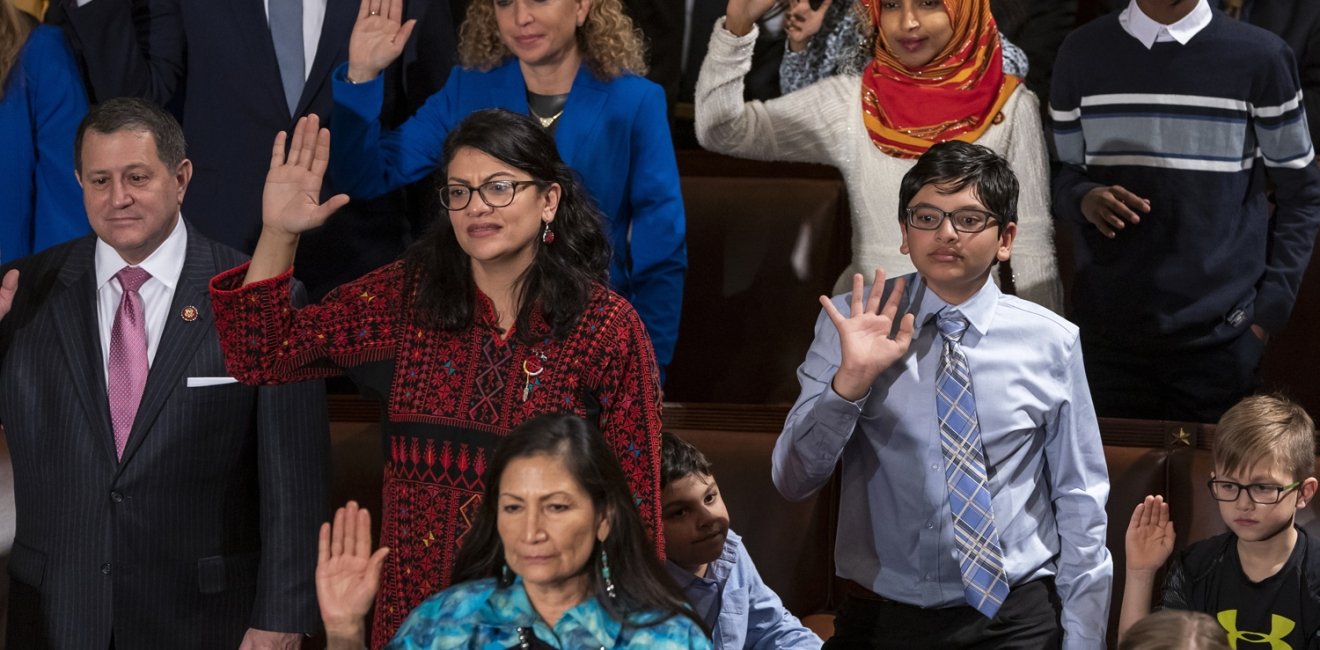
A blog of the Middle East Women's Initiative
Women know a thing or two about facing challenges — and triumphing over them. That’s true in the Middle East, in the United States, and around the world. My political career began in one of those moments of triumph. I was first elected to the House of Representatives in the Year of the Woman, 1992, when we nearly doubled the number of women in Congress. In the Middle East — particularly Egypt, Iraq, Iran, and Jordan — women have been elected to parliaments and appointed to cabinet positions since the 1960s.
But as women amplify their voices and fight to achieve gender parity, I’m struck by another common thread between the U.S. and the Middle East: Just like in the U.S., no woman has ever served as head of state or head of government in an Arab country. At least not in modern times: We’re a long way from the inspiring legacies of Middle Eastern women leaders like Enheduanna of Iraq — for whom this blog is named — Cleopatra of Egypt, Asma bint Shihab of Yemen, and Sayyida al Hurra of Morocco.
This conspicuous fact says something about our societies’ still-missed opportunity to benefit from the shrewdness and skills that women contribute, both to the public and private sectors.
The absence of women is borne out by the statistics. The 2018 Gender Gap Index ranks the United States at a disappointing 51 out of 149 countries, but the Middle East and North Africa (MENA) are faring worse: Some countries in the region are ranked among the lowest in the world in terms of women’s economic and political participation, educational attainment, and health.
The World Bank’s 2019 Women, Business and the Law report also shows the MENA region trailing on equality before the law, with women guaranteed on average less than half the legal rights of men, compared to the global average of about 75%. (The United States is above average, with about 84% parity.)
Facing these hurdles, women have a bold response. According to World Bank research, women in some Middle Eastern countries are measuring up to and even outperforming men in secondary and tertiary educational attainment. So far, this hasn’t translated to the labor market — but governments in the Middle East and North Africa can’t forsake women’s economic potential for long. According to the McKinsey Global Institute’s Power of Parity report, a MENA region with gender parity in the workforce would see its annual GDP increase by 47% in 2025.
There are still legal, social, and political barriers to gender equality in the Middle East and the United States. But there is hope and enthusiasm for positive change. In the Middle East, women have made history in recent years: Tunisia elected MP Meherzia Labidi as the first deputy speaker of Parliament in 2011; the United Arab Emirates elected Dr. Amal Al Qubaisi as the first female Parliamentary speaker in the Arab Middle East in 2018; and Bahrain’s Parliament followed suit in electing Fouzia Zainal as their first female speaker the same year.
And in the United States, 2018 marked a stunning reprise of the Year of the Woman. More than 100 women were elected to the House for the first time in history. Nancy Pelosi, the first and only woman to serve as Speaker of the House, regained the gavel. The first Muslim women, first Native American women, and female veterans and former C.I.A. analysts joined the fray. That’s cause for celebration nearly 100 years after women were given the right to vote in this country.
But there is more work to be done, and I eagerly await the next generation of leaders. My kids always joke that they will never run for public office. Perhaps my grandchildren, four girls out of a total of eight, will.
Author


Middle East Program
The Wilson Center’s Middle East Program serves as a crucial resource for the policymaking community and beyond, providing analyses and research that helps inform US foreign policymaking, stimulates public debate, and expands knowledge about issues in the wider Middle East and North Africa (MENA) region. Read more


Middle East Women's Initiative
The Middle East Women's Initiative (MEWI) promotes the empowerment of women in the region through an open and inclusive dialogue with women leaders from the Middle East and continuous research. Read more

Explore More in Enheduanna
Browse Enheduanna
Women are the Catalysts for Change in Lebanon

How Education Can Empower Young Women in MENA


